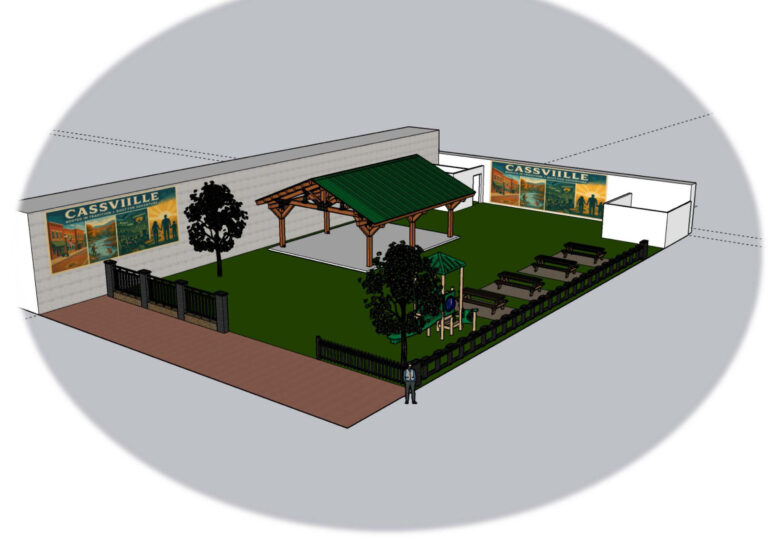Lawsuit halts permitting
CRAP claims Denali, Synagro lagoons are solid waste processing facilities
While Denali Water Solutions and Synagro Central are awaiting a date for judicial review of their suit against the Missouri Fertilizer Control Board for what they allege is the Board’s abrupt change in interpretation of the Missouri Fertilizer Law, a group of residents from Randolph County have filed suit against the Missouri Department of Natural Resources (DNR) for what they allege is an overstepping of the department’s authority relating to Denali.
According to their petition, Citizens of Randolph County Against Pollution (CRAP) allege that the DNR has exceeded its statutory authority by allowing Denali to construct what they say is a “solid waste processing facility” in their county without the permits required by law. Their suit was filed in Cole County Circuit Court in Jefferson City on Aug. 24 by Attorney Stephen G. Jeffery of the Jeffery Law Group, LLC, in Chesterfield, Missouri.
CRAP’s petition alleges that a near-15-million-gallon earthen basin constructed a couple of miles southwest of Jacksonville in Randolph County, is a “solid waste processing facility,” and, as such, should be subject to the Missouri Solid Waste Management Law.
Instead, states the petition, “Denali did not apply for and [the DNR] did not issue any permit of any kind relating to the earthen basin [in Randolph County], nor was a permit granted for [its] construction.”
The Randolph County basin is not alone.
In a January 2023 email to the Cassville Democrat, Heather Peters, with the Watershed Protection Program of the DNR, said the system used for the Evans lagoon in Newton County, was exempt from the DNR’s construction and operating permitting requirements.
“Denali shared their design plans, which were prepared to meet our regulatory standards for lagoons,” Peters said at that time. “Because [the Evans] facility is exempt from our regulations, though, we did not oversee or verify construction; we also did not have the authority to establish operational requirements or conduct routine operational inspections.” Denali did not share their design plans for the Gideon basin prior to its construction, Peters said.
When the Evans and Gideon basins were constructed a few years ago, fertilizer permits had been issued to Denali by the Missouri Fertilizer Control Board (MoFCB) for the land-application of the contents of the Denali basins. However, as of June 30, 2023, the MoFCB says fertilizer permits for those contents are no longer required and will not be issued. The responsibility for the basins’ contents, says the MoFCB, is now in the hands of the DNR. Denali and fellow affected company, Synagro, are contesting the MoFCB’s decision with a lawsuit filed in Cole Country Circuit Court on July 27.
The more recent citizens of Randolph County lawsuit brought against the DNR adds yet another dimension to the game of waste companies round robin.
If CRAP’s case is successful, not just one, but all four of Denali’s basins in Missouri could be affected. Those basins include the Randolph County basin, the Evans basin in Newton County, the Gideon basin in McDonald County and a smaller basin located in Macon County.
CRAP cites the purpose and importance of the Missouri Solid Waste Management Law in its petition, a law “state legislature enacted in (?) to prevent public nuisances, public health hazards, and the despoliation of the environment that necessarily accompany the accumulation and unmanaged disposal of garbage, refuse and filth.”
“Throughout human history this menace has led to and intensified disease and plague,” the Law states. “The legislature, in its wisdom, has forbidden the dumping of solid waste on the ground, in streams, springs and other bodies of water except through solid waste processing facilities, solid waste disposal areas, and other means that do not create public nuisances or adversely affect the public health.” Craig v. City of Macon, 543 S.W.2d 772, 773 (Mo. Banc 1976).
At question, in part, is the type of material that Denali handles.
According to CRAP’s petition, Denali’s website defines the company as a waste disposal and recycling industry. As such, it has accepted over 250 permits from the State of Arkansas with the Standard Industrial Classification (SIC) code for “Refuse Systems.”
However, alleges the petition, in its application submitted to the state of Missouri, Denali uses the SIC code for an agricultural business performing “Soil Preparation Services.”
In its petition, CRAP states that perhaps the DNR was confused by Denali using an apparently erroneous SIC code in its application which made it appear that Denali was an agricultural business instead of a waste disposal business. The DNR then unlawfully issued the company a permit exemption for their facility, CRAP alleges.
CRAP is asking the Court to sustain its petition and issue a preliminary and permanent Writ of Prohibition against the DNR, and command the department to require Denali to cease any and all activities and operations at any solid waste processing facility/earthen basin in Missouri storing food waste residuals until such time as the DNR has issued Denali a construction permit and an operating permit under the Missouri Solid Waste Management Law.
Attorney Stephen Jeffery says that if the same materials are being deposited into the lagoons in Newton and McDonald Counties that are being proposed for the lagoon in Randolph County, he believes citizens in southwest Missouri have strong legal theory to pursue the same type of legal action.
In response to CRAP’s petition, a preliminary Writ in Prohibition was signed by Cole County Circuit Judge Daniel Richard Greene on Aug. 31, directing the DNR to refrain from all further [permitting] action until further order.
The DNR has until Oct. 20 to respond.
In Denali and Synagro’s suit against the MoFCB, a response was filed by Missouri Attorney General Andrew Bailey on behalf of the MoFCB, on Aug. 28.
A date for the judicial review has not yet been set. The case has been assigned to Judge Cotton Walker in Cole County Circuit Court in Jefferson City.





